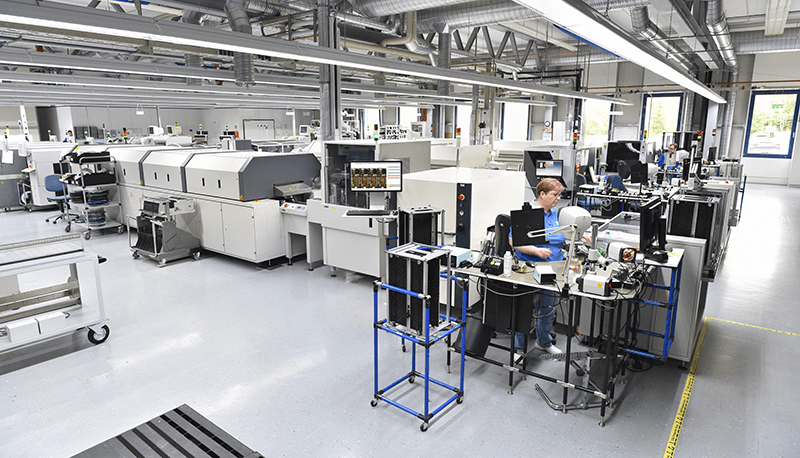In the fast-paced world of high-tech industries, agility, efficiency, and innovation are key to staying ahead. With rapidly evolving technologies and market demands, businesses need to optimize their operations—often under pressure. This is where BPM (Business Process Management) automation enters the picture, reshaping the way high-tech companies manage internal workflows, streamline complex processes, and enhance overall productivity. By automating tasks that once took days or weeks, BPM allows high-tech companies to respond faster, operate more efficiently, and improve their bottom line.
Let’s explore how BPM automation is transforming high-tech operations and helping companies stay competitive.
1. Speeding Up R&D with Automated Workflows
Research and Development (R&D) are at the heart of innovation in the high-tech sector. But the road to creating groundbreaking technologies can be filled with roadblocks—whether it’s managing approvals, handling prototypes, or keeping track of complex project timelines. This is where BPM automation can make a significant difference.
Automating approval workflows and managing R&D project timelines allows teams to move faster and more efficiently. Instead of waiting for manual sign-offs, projects can automatically move through pre-defined stages, speeding up the overall process. Additionally, real-time tracking and reporting features in BPM tools help R&D teams quickly identify bottlenecks or delays, allowing them to take corrective action before a small issue snowballs into a big one.
Real-World Example: An AI research company integrated BPM into their R&D workflow, reducing approval times by 40%. The automation streamlined the way their teams shared information and tracked project progress, helping them launch new models months ahead of competitors.
Why It Matters: In high-tech, staying ahead of the competition means faster R&D cycles. Automation in this area can help accelerate time-to-market, ultimately leading to a competitive edge and more innovative products.
2. Optimizing Supply Chain and Manufacturing
A smooth and efficient supply chain is vital for any high-tech company. A single disruption or mismanaged inventory can cause significant delays and impact profits. BPM automation is key to overcoming these challenges by optimizing supply chain management, production processes, and inventory tracking.
By automating key aspects such as inventory monitoring, order fulfillment, and supplier management, BPM tools offer high-tech companies the visibility and control they need to prevent delays and manage costs effectively. Automation ensures that companies can anticipate supply chain disruptions and react proactively, rather than scrambling to fix issues once they arise.
Real-World Example: A leading semiconductor manufacturer adopted BPM to automate their inventory and order management systems. This move improved forecasting accuracy, reducing stockouts by 25%, and ensured that their production lines were consistently stocked with the parts needed to meet demand.
Why It Matters: An optimized supply chain ensures that production stays on schedule, costs are managed effectively, and products reach customers faster—critical factors for success in the high-tech industry.
3. Enhancing Customer Support with Intelligent Automation
Customer service plays a pivotal role in customer satisfaction and retention. In the high-tech industry, where products are often complex, having an efficient customer service operation is essential. BPM automation can revolutionize how customer support teams handle tickets, respond to queries, and manage service requests.
With BPM, customer service teams can automate routine tasks, like ticket routing, issue categorization, and follow-up reminders. Furthermore, BPM systems can integrate with CRM platforms to give agents real-time access to customer data, enabling them to resolve issues faster. Automated knowledge bases can also be used to provide customers with self-service options, reducing the burden on support teams.
Real-World Example: A global tech company automated their customer service ticketing process using BPM, reducing ticket resolution time by 50%. They also implemented automated responses for common customer inquiries, which decreased the volume of calls to their service team, allowing agents to focus on more complex issues.
Why It Matters: Faster, more accurate customer service means higher customer satisfaction. In high-tech, where technical problems can be complex, automation in support ensures that customers get the answers they need quickly.
4. Navigating Compliance and Regulatory Requirements
The high-tech industry is heavily regulated, and compliance is an ongoing challenge. From data protection regulations to industry-specific standards, companies must stay ahead of evolving compliance demands. BPM automation ensures that businesses can meet these requirements without drowning in paperwork or risking non-compliance.
BPM tools can automate compliance tracking, record-keeping, and reporting. By creating a digital audit trail, these tools make it easy for businesses to track their compliance status, ensure that all requirements are met, and provide the necessary reports during audits. Automation can also help reduce human error, ensuring that companies stay compliant without the added stress.
Real-World Example: A cybersecurity firm utilized BPM automation to track and report their compliance with GDPR (General Data Protection Regulation). With automated reporting, the company saved hundreds of hours annually in manual reporting and improved their audit readiness.
Why It Matters: In the high-tech industry, regulatory compliance isn’t optional—it’s essential. BPM automation helps ensure that businesses can meet their compliance obligations while focusing on innovation.
5. Accelerating Product Launches
In the high-tech industry, speed-to-market can be the difference between a product's success and its failure. With so many moving parts involved in product development, launch, and distribution, ensuring that everything runs smoothly is no easy feat. BPM automation brings everything together, aligning development teams, marketing, logistics, and customer support to ensure that products are launched seamlessly.
By automating tasks like project scheduling, marketing campaign tracking, and product testing, BPM tools ensure that every department works in sync. Automated workflows reduce manual intervention, which means fewer mistakes and delays. BPM also provides real-time visibility into product development stages, allowing teams to quickly address any roadblocks.
Real-World Example: A wearable tech startup adopted BPM automation to streamline its product launch processes. This allowed them to cut the launch time in half, getting their products to market faster than their competitors and securing a first-mover advantage.
Why It Matters: Faster product launches mean higher profits and a stronger position in the market. BPM automation enables high-tech companies to deliver their products quickly and efficiently, meeting customer demand without sacrificing quality.
6. Boosting Collaboration Across Teams
In high-tech companies, teams often work in silos, which can lead to inefficiencies and miscommunications. BPM automation breaks down these silos by fostering seamless collaboration across departments. Whether it's R&D, marketing, or customer service, BPM ensures that everyone is on the same page, with automated workflows and centralized data accessible to all teams.
By creating automated, cross-departmental workflows, BPM tools allow teams to collaborate effortlessly. Automated notifications, shared task lists, and integrated systems mean that everyone stays informed and up-to-date, reducing delays and increasing productivity.
Real-World Example: A software development company implemented BPM to enhance collaboration between its design and engineering teams. By automating task handoffs and communication, they improved project completion times by 35%.
Why It Matters: Collaboration is key to innovation. BPM automation allows teams to work together efficiently, which accelerates product development and fosters a culture of innovation.
The Bottom Line: BPM Automation is the Key to High-Tech Success
BPM automation isn’t just a nice-to-have—it's a must-have for high-tech companies that want to stay competitive, innovative, and agile. From speeding up R&D cycles to streamlining supply chains and improving customer support, BPM is revolutionizing how high-tech businesses operate. Whether you're improving compliance tracking, launching new products faster, or boosting team collaboration, BPM automation helps you do it all.
Ready to revolutionize your high-tech operations with BPM automation?Let’s explore how it can help your business innovate, grow, and thrive.





